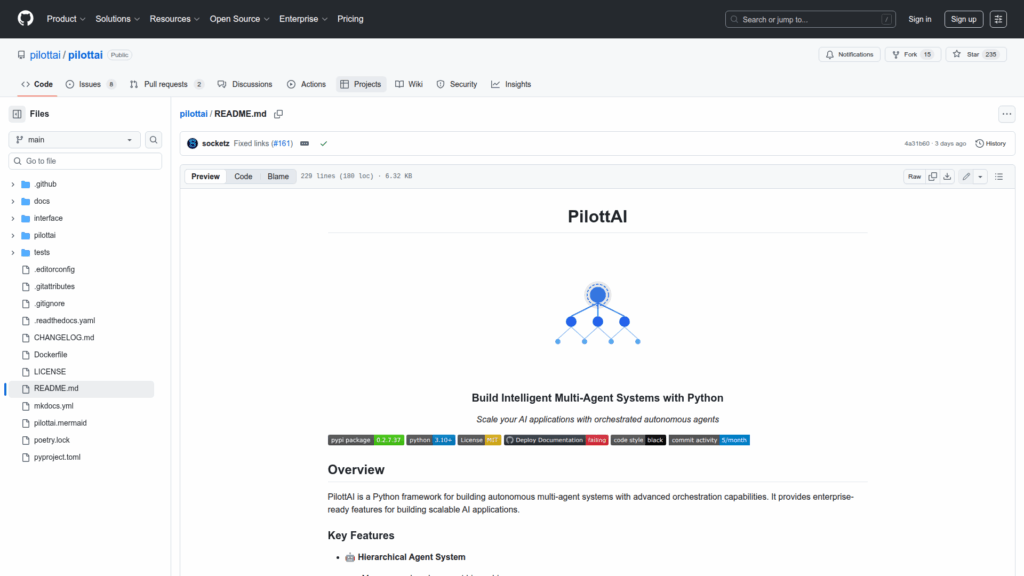pilottai
Basic Information
PilottAI is a Python framework designed to build, orchestrate, and run autonomous multi-agent systems for scalable AI applications. It provides a structured, hierarchical agent model with manager and worker roles, intelligent job routing, context-aware processing, and specialized agent implementations. The project targets production use with support for asynchronous processing, dynamic scaling, load balancing, fault tolerance, and comprehensive logging. It includes memory capabilities for semantic storage and job history, integrations with multiple LLM providers, document processing tools, WebSocket support, and custom tool integration. The repository contains core components, agent implementations, memory and orchestration modules, tool integrations, and example specialized agents for common use cases. The package is installable via pip and aims to help teams deploy enterprise-ready multi-agent workflows and job orchestration in Python.








